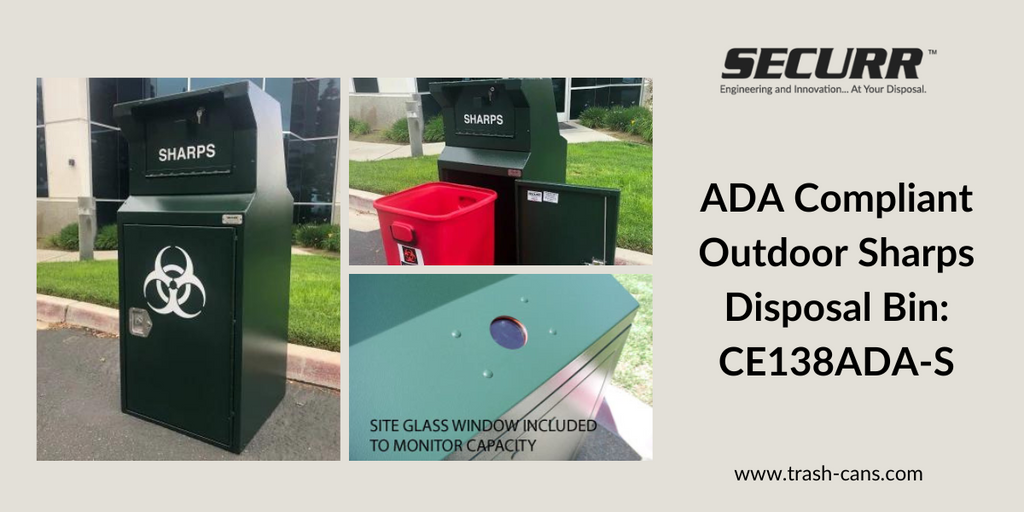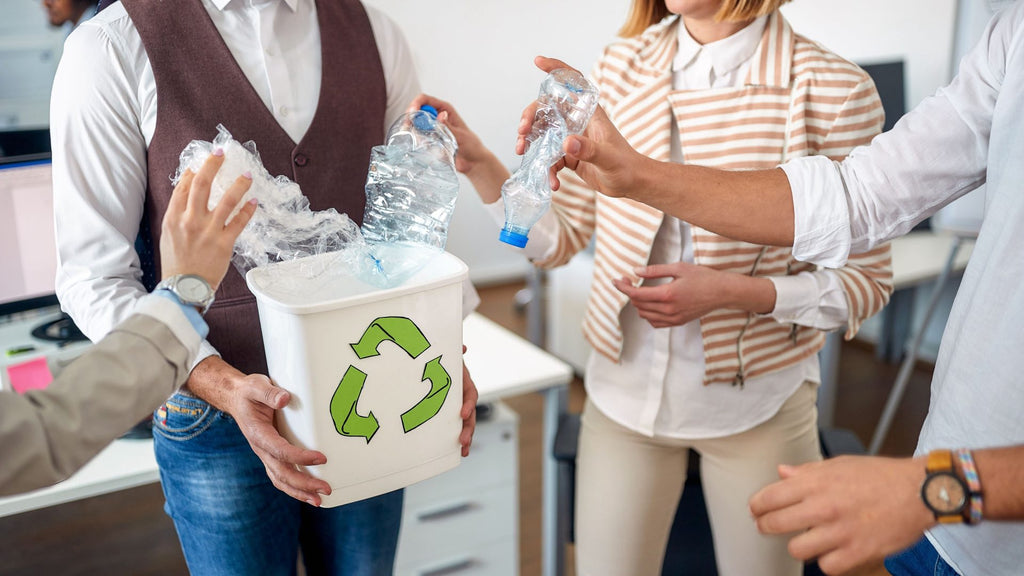News
The Growing Threat of Plastic Pollution and How You Can Make a Difference
Posted by Securr Blogger on
Plastic pollution has evolved into a pressing global issue, with dire consequences looming on the horizon. Plastics, notorious for their non-biodegradable nature, relentlessly accumulate in our landfills and oceans. Shockingly, projections by the World Economic Forum and Ellen MacArthur Foundation suggest that by 2050, the volume of plastic in our oceans may surpass that of fish. But just how grave are the dangers posed by plastic, and what can you do to combat this burgeoning crisis? Unveiling the Plastic Predicament Plastics have unleashed a crisis in our oceans, epitomized by the disquieting spectacle of the Great Pacific Garbage Patch. The discovery of this gargantuan garbage cluster in 2003, stumbled upon by Captain Charles Moore during a Pacific voyage, serves as an ominous testament to the extent of the problem. Stretching across an expanse estimated to be three times the size of France, it took Moore and his crew an entire week to traverse this plastic-laden expanse. At the patch's surface,...
Secure and Durable ADA Compliant Outdoor Sharps Disposal Bin: A Must-Have for Safe Medical Waste Management
Posted by Securr Blogger on
In healthcare facilities and public spaces, the safe disposal of medical sharps and pharmaceutical waste is a top priority. To meet this critical need while ensuring both security and aesthetic appeal, Securr presents the ADA Compliant Outdoor Sharps Disposal Bin, with a generous 38-gallon capacity, designed to safeguard and streamline the disposal process. In this article, we will explore the key features and benefits of this essential waste management solution. Meeting ADA Compliance with Unparalleled Durability Securr Sharps Disposal Kiosks are engineered to meet the rigorous standards of the Americans with Disabilities Act (ADA), ensuring that individuals with disabilities can access and use the disposal bin without any hindrance. This ADA-compliant bin comes equipped with a single lock cabinet, approved medical waste liner, and a user-friendly "chute" type loading door. The loading door ensures that the contents are securely deposited and cannot be accessed until the service door is unlocked.What sets the Securr Sharps Disposal Bin apart is its exceptional...
Waste Audits – How They Work and Why They're Important
Posted by Securr Blogger on
Have you ever stopped to consider the fate of the trash we generate daily? Enter the realm of waste audits - an essential tool in understanding our waste generation, its composition, and its implications for a more sustainable future. Let’s delve into the intricacies of waste audits, exploring what they involve, their methodology, and the reasons behind their significance. Understanding waste audits Imagine waste audits as thorough examinations of our trash. These audits involve meticulously sorting through a representative sample of waste to discover its components and characteristics. This practice extends beyond household settings to encompass institutions, businesses, industries, and municipalities. How do they work? Waste audits are a systematic process. Begin by collecting an average sample of your waste – an accurate microcosm of your overall waste stream. Next comes the sorting stage. Segregate waste into categories like plastics, paper, organic matter, and more. Next, examine the weight of each category to provide a tangible visual of your waste...
Exploring Solutions to Tackle the Alarming Issue of Food Waste
Posted by Securr Blogger on
Food waste is a growing concern across various industries, often overlooked in daily operations. Surprisingly, a wide range of establishments contribute to this issue, including nursing homes, hospitals, supermarkets, schools, hotels, prisons, corporate offices, catering halls, food courts, and restaurants. On average, these establishments generate approximately one pound of waste per meal, taking both pre-sale and post-sale waste into account. Given the staggering amount of waste produced, it is imperative to find ways to reduce food waste and discover more sustainable disposal methods. Understanding the Challenge To combat food waste effectively, it is essential to begin with a waste audit. A waste audit provides valuable insights into the quantity of waste being generated and evaluates the efficiency of waste recovery methods. Armed with this information, businesses can strategize on reducing their waste footprint.Two critical areas to address in the battle against food waste are the pre-sale and post-sale stages. In the preparation stage, substantial waste is generated. Consider the following...
The Benefits of Implementing a Commercial Recycling Program
Posted by Securr Blogger on
If you're running a business, here's some great news – setting up a commercial recycling program isn't just a trend, it's a win-win! Not only will you be contributing to a healthier planet, but you'll also be reaping numerous rewards for your business. Let's dive into the benefits that come with implementing a commercial recycling program. Cut costs and boost savings Recycling isn't just about saving the Earth – it's also about saving your hard-earned cash. By diverting recyclable materials from the trash bin, you can significantly reduce your waste disposal expenses. Plus, many recycling services offer cost-effective solutions tailored to businesses. Build a green reputation and attract happy customers In today's environmentally conscious landscape, consumers appreciate businesses that prioritize sustainability. A solid recycling program showcases your commitment to being eco-friendly, which can attract environmentally aware customers who are more likely to support your brand. Stay compliant with laws and regulations Laws and regulations regarding waste disposal are becoming stricter....





